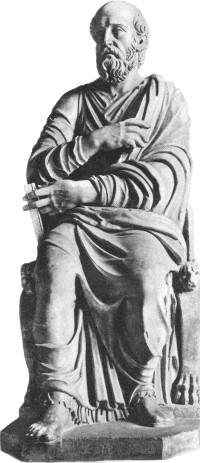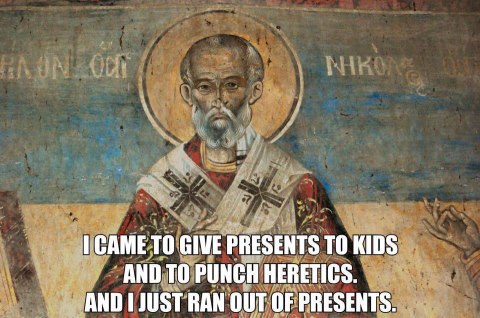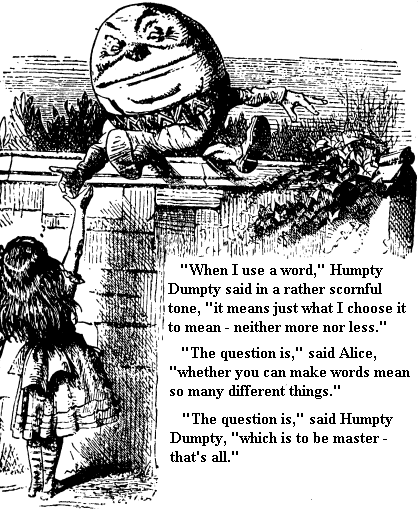 Against Celsus is not the only important surviving book by Origen. Origen’s On First Principles is often called the first systematic Christian theology. It was written some time before 231. It is a bold and wide-ranging work, and in Origen’s day Christian theologians could speculate a fair amount.
Against Celsus is not the only important surviving book by Origen. Origen’s On First Principles is often called the first systematic Christian theology. It was written some time before 231. It is a bold and wide-ranging work, and in Origen’s day Christian theologians could speculate a fair amount.
But the curtain was brought down on this era of freedom by ecclesial-political events of the fourth century. While many still considered Origen a great scholar, the atmosphere was such that one might lose one’s church career if people thought you were too sympathetic to his views.
Among his admirers was the great scholar Jerome (translator of the Latin Vulgate Bible), but Jerome had do distance himself from Origen lest the heresy hunters get him. But still, people wanted to read Origen. Answering this need, Rufinus (d. 410) translated Origen’s On First Principles into Latin. Problem is, Rufinus systematically cut out and/or changed numerous passages that would not fit the new Pro-Nicene hegemony.
How do we know this? Because Rufinus tells us! He argues that heretics must have corrupted Origen’s works, since there just could not be a difference between those and the new catholic orthodoxy. Also, we have from other sources, e.g. letters of his contemporaries, the Greek texts of some of the cut and altered passages. In the excellent modern edition of the book, the editor-translator restores these to the text. Sadly, Rufinus’s Latin version is the only complete version we have of Origen’s book, so as it stands, the book is riddled with suspicious passages that don’t fit what we otherwise know about Origen, but which we have no textual grounds to correct. (On the whole crazy affair, see the above edition, pp. xxxi-lii.)
Here are some of the cut and restored passages; if you’re familiar with the “Arian” controversy and the trinitarian orthodoxy that coalesced and acquired the power of the Roman emperor at the end of the fourth century, you will not need an explanation why Rufinus cut them.
…the Saviour… is an image of God’s goodness, but Read More »trinitarian or unitarian? 7 – Origen uncensored






















